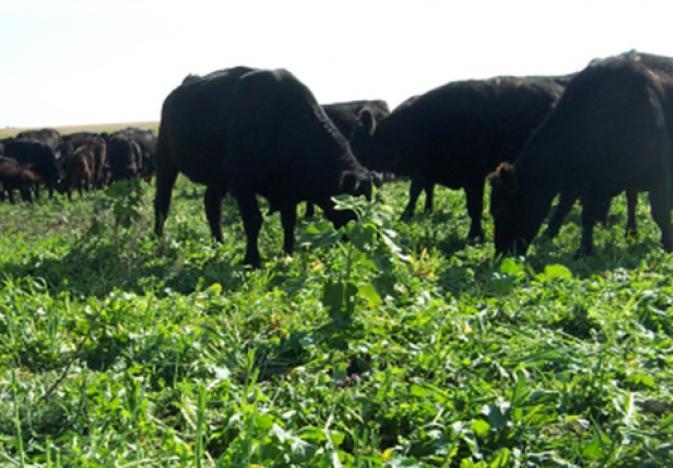Cover Crops might be a really good idea for empty prevent plant acres in farm country. The U.S. Department of Agriculture just announced that farmers who planted cover crops on prevented plant acres will be permitted to hay, graze or chop those fields earlier than November this year. USDA’s Risk Management Agency (RMA) adjusted the 2019 final haying and grazing date from November 1 to September 1 to help farmers who couldn’t plant crops because of flooding and excess rainfall this spring.

“We recognize farmers were greatly impacted by some of the unprecedented flooding and excessive rain this spring, and we made this one-year adjustment to help farmers with the tough decisions they are facing this year,” said Under Secretary for Farm Production and Conservation Bill Northey. “This change will make good stewardship of the land easier to accomplish while also providing an opportunity to ensure quality forage is available for livestock this fall.”
RMA has also determined that silage, haylage and baleage should be treated in the same manner as haying and grazing for this year. Producers can hay, graze or cut cover crops for silage, haylage or baleage on prevented plant acres on or after September 1 and still maintain eligibility for their full 2019 prevented planting indemnity.
“These adjustments have been made for 2019 only,” said RMA Administrator Martin Barbre. “RMA will evaluate the prudence of a permanent adjustment moving forward.”
Other USDA Programs
Other USDA agencies are also assisting producers with delayed or prevented planting. USDA’s Farm Service Agency (FSA) is extending the deadline to report prevented plant acres in select counties, and USDA’s Natural Resources Conservation Service (NRCS) is holding special sign-ups for the Environmental Quality Incentives Program in certain states to help with planting cover crops on impacted lands. Contact your local FSA and NRCS offices to learn more.
More Information
Read our frequently asked questions to learn more about prevented plant.
